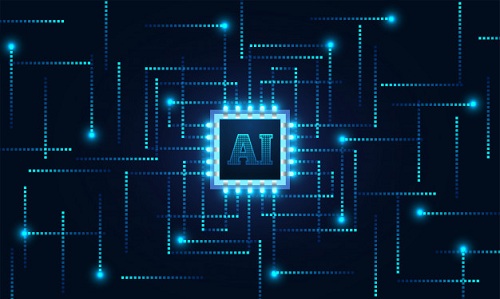AI Can Revolutionize Transportation Industry?
Currently, there is significant investment in the wider
automotive industry, focusing on Artificial Intelligence and specifically on
the optimization of the self-driving technology — targeting mass production of
cars of ‘level-5 autonomous tech’. At the same time, new players claim a
leading role in the under-transformation automotive market:
Artificial intelligence in transportation helps the
transportation companies to ensure public safety for their service. Artificial
Intelligence in transportation makes use of various concepts like deep
learning, computer vision, and context awareness to know the way the drivers
handle their resources. Various organizations are using AI in transportation
solutions for data collection and decision making.
According to The Insight Partners- The artificialintelligence in transportation market is expected to grow at a CAGR of 17.87%
during the forecast period, size is expected to grow from USD 1.21 Billion in
2017 to USD 10.30 Billion by 2030.
Some of the key players influencing the artificial
intelligence in transportation market are AB Volvo, Daimler AG., Robert Bosch
GmbH, NVIDIA Corporation, Intel Corporation, Microsoft, Aimotive, Third Space
Auto Ltd., MOMENTA, and Xevo among others.
 |
| Image Credit: interestingengineering |
Get sample PDF copy of Artificial Intelligence in Transportation Market study at: https://www.theinsightpartners.com/sample/TIPAT00002404/
The use of advanced
technologies in the transportation industry is affected by factors that are
difficult to predict. AI uses observed
data to make or even predict decisions appropriately.
Here are just some of the ways artificial intelligence is
changing the face of transport, and what we can expect in the near future.
1.
Autonomous Cars: Driving Towards the Future –
Autonomous cars have quickly moved
from the realm of sci-fi into reality. Though still in the early stages, these
AI-driven vehicles could drastically change how we get from A to B in the near
future.
2.
Self-Driving Trucks: Redefining Multiple
Industries-
From plowing snow to collecting
garbage, self-driving trucks could soon be taking over a lot of our dirty work.
The technology behind these trucks could also be utilized in freight, capable
of transporting 2,000,000 pallets a year each.
How AI can help transportation:
Transportation problems arise when system behavior is too
difficult to model according to a predictable pattern, affected by things like
traffic, human errors, or accidents. In
such cases, the unpredictability can be aided by AI.
Improvement of Public safety-
Artificial intelligence helps companies in the
transportation industry to ensure the safety of the public when using their
services. Safety of citizens using public transport in urban areas can be
improved by tracking crime data in real time. This will also facilitate the
police to increase their efficiency by patrolling and keeping the citizens
safe.
Pedestrian safety –
Using AI, the path of pedestrians or cyclists can be easily
predicted, which would help in decreasing instances of traffic accidents and
injuries. This will allow for more diverse transportation usage and an overall
reduction in emissions.
Traffic Patterns:-
Transport is greatly affected by traffic flow. Traffic
congestion in the US costs around $50 billion per year. If this data is adapted
for traffic management via AI, it will allow streamlined traffic patterns and a
significant reduction in congestion. Several similar systems are already in
place. For example, smarter traffic light algorithms and real time tracking can
control higher and lower traffic patterns effectively. This can also be applied
to public transport for optimal scheduling and routing.
Decision-making-
The road freight transport system can utilize accurate
prediction methods to forecast their volume using AI methods, which simplifies
transportation company planning. Additionally, several decision-making tools
for transport can be designed and run by AI.


Comments
Post a Comment